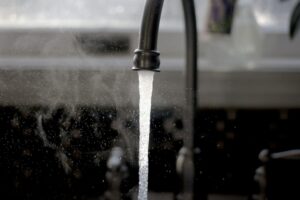The Magic Behind Electronic Leak Detection: How It Actually Works
Have you ever had that moment when you noticed a wet spot on your ceiling or a mysteriously high water bill? Yeah, me too. It’s the worst feeling, especially when you have no idea where the water is coming from. That’s where electronic leak detection comes in—it’s basically a superhero for homeowners dealing with sneaky leaks.
What’s Electronic Leak Detection Anyway?
Think of electronic leak detection (ELD) as a detective tool that finds hidden water leaks without tearing your house apart. Before this technology, plumbers often had to play a frustrating guessing game that involved cutting into walls or digging up your yard. Now they can pinpoint leaks with impressive accuracy using some pretty cool gadgets.
The Cool Tech That Finds Your Leaks
Depending on where your leak might be hiding, professionals use different approaches. Let me walk you through the main ones:
Listening for Leaks: Acoustic Detection
Water makes noise when it escapes from pipes—even if it’s just a tiny whisper that human ears can’t pick up. With acoustic detection:
- A technician uses super-sensitive microphones placed on surfaces
- These devices amplify the sound of escaping water
- The tech can tell the difference between normal water flow and a problematic leak
This method works wonders for finding leaks in underground pipes or behind walls without destroying anything.
Seeing the Invisible: Thermal Imaging
Some leaks are the silent type, but they can’t hide from thermal cameras. This method is like giving the technician superhuman vision:
- They scan your walls, floors, or ceilings with a special infrared camera
- Wet areas show up cooler (usually blue or purple) on the display
- Dry areas appear warmer (typically red, orange, or yellow)
I find this method fascinating because it literally makes the invisible visible!
Moisture Meters: The Confirmation Tool
This is the simplest tool in the leak detection arsenal, but it’s super helpful:
It’s basically a device that measures how wet materials like drywall or wood are, Higher-than-normal readings indicate a leak is nearby. Technicians often use this to double-check what they’ve found with other methods
The Gas Tracker Method: For Stubborn Leaks
For those frustratingly elusive leaks, technicians might use helium or hydrogen gas:
- They pump harmless gas into your plumbing system
- The gas escapes through even the tiniest cracks
- Special sensors detect where the gas is coming to the surface
It sounds like something from a sci-fi movie, but it works incredibly well!
Why This Beats the Old-School Approach
Before we had these electronic methods, finding leaks was a nightmare. Now there are clear advantages:
- No demolition required (your walls and floors stay intact!)
- It’s WAY faster at finding the problem
- The accuracy is impressive—often down to the exact inch
- Works for practically any type of leak
How Long Will I Need to Wait?
Nobody likes waiting around for repairs, so here’s what to expect time-wise:
- Small household leaks: Usually just 1-2 hours to locate
- Bigger plumbing issues: Around 2-4 hours
- Commercial or deep underground problems: Could take 4+ hours
The good news is that once they find the leak, fixing it becomes much more straightforward.
What About the Cost?
Yes, it’s an investment, but compare that to the thousands you might spend repairing water damage from an undetected leak. Not to mention the headache of mold remediation!
Is It Really Worth Calling the Pros?
If you’re noticing any of these warning signs, the answer is a resounding yes:
- Water bills that suddenly spike for no reason
- Mysterious damp spots appearing on walls or floors
- That distinctive musty smell of mold or mildew
- Shower pressure that’s suddenly gone from “great” to “disappointing”
The Bottom Line
Electronic leak detection might seem like a luxury service, but when you’re facing water damage, it’s actually the economical choice. It saves time, prevents unnecessary damage to your property, and gets right to the heart of the problem.
Next time you suspect a leak, remember, modern technology can find it without turning your home into a construction zone. And that’s something we can all appreciate!




